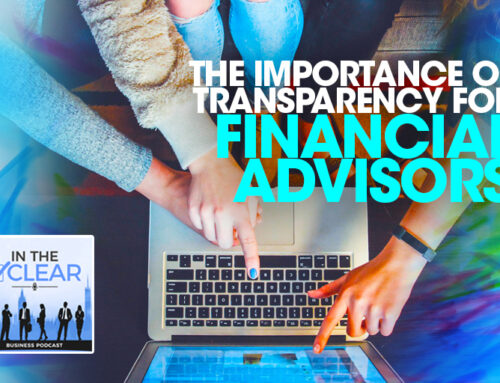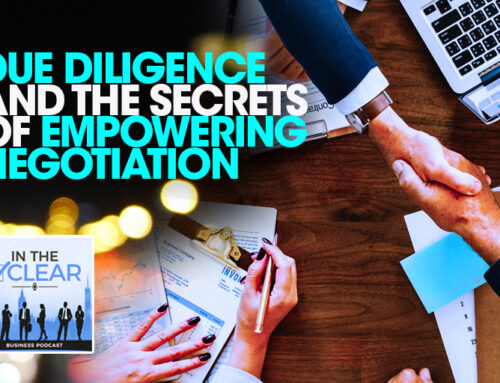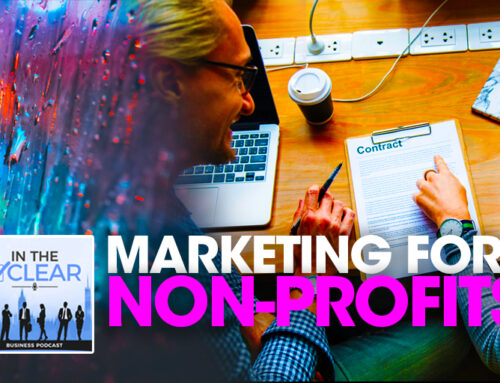 Renowned country artist Michael Peterson joins Justin Recla to talk about the power of music and the music industry to move and encourage people in business. Michael is best known for his self-titled 1997 debut and has recorded 18 studio & live albums and given nearly 2,500 performances in 19 countries during a unique career that spans over 30 years and includes five #1 chart hits. In addition to his music career, Peterson is a contributing author to eight books, including the #1 New York Times bestselling Chicken Soup for The Soul series. He is the recipient of numerous distinguished public service awards, including the prestigious Bob Hope “Spirit of Hope” medal from the USO following his 11 tours and over 150 performances for servicemen and women deployed to Iraq, Afghanistan, and South Korea. Listen in as he and Justin talk about the music industry, instilling hope, and move people in business.
Renowned country artist Michael Peterson joins Justin Recla to talk about the power of music and the music industry to move and encourage people in business. Michael is best known for his self-titled 1997 debut and has recorded 18 studio & live albums and given nearly 2,500 performances in 19 countries during a unique career that spans over 30 years and includes five #1 chart hits. In addition to his music career, Peterson is a contributing author to eight books, including the #1 New York Times bestselling Chicken Soup for The Soul series. He is the recipient of numerous distinguished public service awards, including the prestigious Bob Hope “Spirit of Hope” medal from the USO following his 11 tours and over 150 performances for servicemen and women deployed to Iraq, Afghanistan, and South Korea. Listen in as he and Justin talk about the music industry, instilling hope, and move people in business.
Welcome to the In The Clear Podcast. I am your host Justin Recla and today … Today we have a treat. Today we are talking to a gentleman who is been top of his game for the last 20 years and has had a huge impact in not only the business world, but the music industry as well. He’s got multiple best selling number one hits. He’s just released a new album to celebrate his 20 years in the industry. Please help me welcome Michael Peterson to the show. Michael, thank you so much for joining us.
Hey, thanks Justin. Thank you so much for having me on.
We were talking a little bit before the show, and for those of you that may not know Michael, his music, I guarantee you have heard his music somewhere along the line. One of the biggest songs that has had an impact in my life, continues every time that I hear it, is “You Could Hear a Pin Drop”.
Every time I hear that played at CEO Space during the veteran’s tribute, just talking about it gets me emotional. That song had such a deep impact on the veteran community. Before we get into the meat and potatoes of what you’re doing, can you share a little bit about that song?

My grandfather was part of the Greatest Generation
Sure. My grandfather was part of the generation of military service numbers that they called The Greatest Generation, and I’m not unique in that obviously as millions of people that have that same story. The one common thread, I think one of the common threads that we all share With grandparents or distant relatives who served in that generation is that they didn’t talk much about it. You came back from here two years in Europe, or Japan, or the Pacific, or Korea, or wherever you went. No matter what you saw, or faced, or experienced, you just man-ed up or woman-ed up and moved on, and built a life. But the nature of trauma is that it lives inside of our spirit and our bodies, and it can be as real when you have a nightmare as it was when you first experienced it.
For many, many adults, their work life and their raising a family captivated their attention so much that for decades these traumas lay unexplored if you will, but you are even experiencing it now in the VA. There’s a lot of Vietnam veterans who are just now hitting retirement age where they don’t have work anymore to captivate their attention or their families are all raised, and the number of veterans coming into the VA now with post-traumatic stress or trauma challenges from the Vietnam era is astounding how many are coming in the last few years. It’s one of those things.
Once the space opens up for you to not be distracted so much by life anymore, well, these traumas, they’re trying to work themselves out, right? They start to bubble to the surface.
The song “You Could Hear A Pin Drop is really about that experience with my grandfather of experiencing him before he died, beginning to open up and deal with it a little bit.
I have a fond appreciation of that. My grandfather served in World War II. He was a torpedo bomber, and he got shot down in the Pacific. Drifted on a raft for two weeks and found himself inside of an island, a toll called Han, Island Han and lived there with the natives for six months. I can remember when he first started being able to talk about it with the kids, and the family, he couldn’t sleep, and so he ended up writing the book. That really allowed him to get that message out and share his experience and it really helped him heal some of those wounds that he had from the trauma that he experienced then.
I connect. I really, really connect with that song, and I know for myself personally, I just want to thank you for writing it because you captured it so beautifully.
Well, thanks. It’s important, and my hope when we wrote it was that it would be a catalyst for these kinds of conversations that might help other people that are looking for a way to say, “This is how I feel. Somebody understands me.”
That’s important. What I love about what you’re doing, we were talking about this before the show as well is that you have found a way to use your artistry in country music to move people, and that is so important. And ultimately, I think at the end the day whether it be music or business, I think ultimately that is all we’re striving to do. It is what kind of impact we have on the world, and you’ve got a very unique skill, a very unique art that has impacts on millions of people, millions of listeners. But you also carry that over to business. Tell me a little bit about what you’re doing in the business world.
One of the things that I’m really committed to, and I’ve come to this slowly over time, was that old saying about experience, you make a lot of mistakes. But those experiences, they don’t come from good judgment. They come from bad judgment.
Good judgment comes from … I can’t remember the quote exactly, but what I’m getting at is that we all make a lot of mistakes along the way and those mistakes are what teach us the right way to do things. I’ll be 59 in August, and the last dozen years or so, I’ve started to really get a hold of this idea that I’ve really become committed to, that it doesn’t matter what we’re trying to accomplish in our business. Ultimately, at the end of the day, we’re dealing with people.
If the people that we’re dealing with have a positive emotional experience with us, that’s uplifting, and enriching, and nurturing in their lives, that will sustain that relationship regardless of whether or not that person wants what you are selling right now. But when they want what you’re selling, or what you’re offering, it sure helps a lot if they have established a rapport with you, and you’ve established a rapport with them that is attractive, because ultimately there’s 100 places, or 1000 places, or a million places depending with what you sell, where you can go to buy something or acquire something. But there are also a few places in our lives where we have personal interactions on a business sense that feel enriching to our lives.
I’m really committed. Over the years, I … Years ago, probably, I don’t know, 2003 or 2004, I guess, I started to just make myself available to serve people that called and said they needed help, so here been an example. Somebody would call and say, “Hey, we’re doing a fund … We want to raise money for a children’s charity.” I would ask them what it is about their charity. And I’d let them know if I knew much about it, how can I learn more about it? Develop relationship, and then, of course, I would say, “Well, do you have a budget?”
Early on, and even to this day, there’s a lot of people that don’t have much of a budget to work with. Prior to that time in my life, I would have probably said, “If you don’t have a budget, you call me when you do.” But there was a shift in my thinking at that point in my life, and what I began to say was, “Tell me about your mission. Tell me about your goal. Tell me about what it is you’re trying to accomplish.” And if they didn’t have a budget, there were many, many, many times, I would say for years, probably 50 to 60% of what I did from 2005 really to the present, I ended up doing pro bono.
You say to yourself, “How does that make business sense?” Well, I guess it depends on what your intended outcomes are. But for me, what I discovered in my commitment to saying yes, when I could, regardless of the money. What I discovered about a dozen times in those dozen years was that saying yes to helping someone who didn’t have money led always, every single time, it led to a new relationship of substance. It didn’t always lead to money, in fact, more and more often than not it didn’t, but the few times that it did, it was astounding deals. Let me give you an example.
I got called by a middle school principal in Huntsville Alabama who said an 11 year old student had shot and killed another student. She’d heard about my school Assembly Program and she said, “Can you come to our school and do Assembly Program?” We had the conversation and it turned out that they didn’t have any budget. My wife and I looked at each other and said, “Hey, we have time in our calendar. If we can drive there, let’s go do it.”
We went down, we did two assemblies there at the school. We had a great day together and at the end of the assemblies that day, there was a gentleman who was … I could see him out of the corner of my eyes standing by the door. He was in a suit and tie and looked like a businessman. He waited till all the students were gone, we’d shaken hands with all the kids. He came up to me and he handed me his card and he said, “Man, I’m really impressed with your assembly program.” He said, “I want to take you to lunch.”
Well, he was a county commissioner for Madison County there in Huntsville Alabama. He basically said, “I’ve never seen anybody do an Assembly Program as powerful as what I saw today and have such an impact on the kids.” And he said, “More importantly …” He says, “I’ve never seen anybody keep all the adults at bay until those that had their handshake, and their autograph, and their photo, or whatever, that basically was trying to put the kids first.” Long story short is he said, “I would like to give you a half a million dollar grant to come and develop programs for our schools for four years.”
Wow. That’s absolutely, absolutely amazing.

I went to serve for free and it turned into six-figure contracts.
Yeah, that’s what I’m saying. It’s like it on paper. You don’t look and say, well, that’s the way to do business. But the thing is you always make friends when you go to serve. And if you go to serve, even if people can’t afford it, if you can afford it, and you care about what they’re doing, many times what it does is it allows people to experience your gift. Where if you say, “No, I can’t show you my gift unless you give me money.” Many times people don’t ever get to your gift. They don’t know what you have.
Yeah, and it’s very, very, very eliminating. Real quick.
That’s an example of what for me has been a different approach towards how I apply the way that I think about that, how I apply it to business. I could give you a half a dozen to a dozen other examples, specific examples, of where I went to serve for free and it turned into six-figure, and on two occasions, seven-figure contracts.
Wow. Well, I tell you what, let’s dive a little bit more into that right after the break. If you’re just joining us, we are talking with Michael Peterson about moving people through business and country music. Stand by. Real quick before we go on break Michael, where can people go to find out more about you?
Yeah, michaelpetersononline.com.
Fantastic. When we get back, we’re going to continue this conversation about how to move people and how to use business to move people as well. Stand by.
To listen to the entire show click on the player above or go to the In the Clear podcast on iTunes.
Podcast: Play in new window | Download





